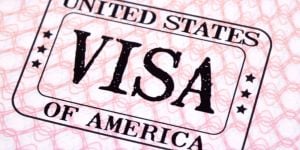Recognition of foreign qualifications in the USA
Make your relocation easier with the USA expat guide

The American lifestyle
The United States is a vast country that is made up of a diverse group of people. Life, landscape, and culture can ...

Dating in the US
Dating anywhere in the world can be nerve-wracking, but dating in a foreign country can be especially ...

Leisure in the US
The United States is a big country with a diverse population and a huge variety of activities that people pursue ...

Setting up a business in the US
Lots of people dream about being their own boss and starting their own business. The United States is famous for ...

Work visas for the US
If you're moving to the United States for work, study, or to accompany a family member or spouse, it's ...

Study in the US
The United States is home to some of the world's most prestigious universities, and it's no surprise they ...

Accommodation in the US
As you're probably aware, the United States is a vast and diverse country with as many different ways of ...

Banking in the US
Opening a bank account in the US is an important step for managing your finances and is an essential part of ...




